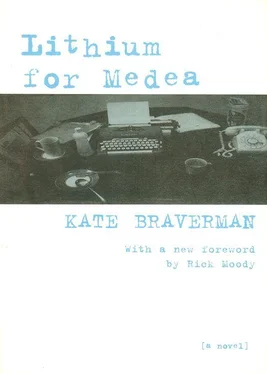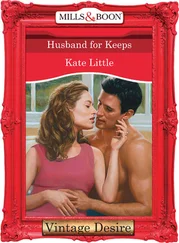It would be almost like living together, Jason explained, but better. There would be no domestic quarrels, none of the trivia of an ordinary marriage, the dull predictable routines and all that goddamned bourgeois gray. We would stay viable human beings in our separate but equal ways, identities intact, free to come and go as we pleased.
I lived in a continual state of terror. Jason peered at me through eyes black from anger. He looked like a man slowly realizing he’s been cheated of his estate, his birthright, his goddamned destiny. Every time Jason left my apartment in Westwood, every single time the door closed, I thought I would never see him again.
Then I moved into the Woman’s House on Eastern Canal. From the top of the bridge in front of my house I could see his red roof.
“Nothing’s changed,” Jason cautioned, “but proximity.”
He smiled, pleased with himself, as if he had invented that particular cliché. We both laughed. Jason laughed because he thought he was clever, witty and way ahead. He thought he was a silver bullet. I laughed because I felt superior. I smiled blankly while yelling and kicking and howling inside. I was encased in my private pretense of silence, a kind of form-fitting metal, my own brand of armor. I dedicated myself to becoming indispensable, subtly, at the periphery. He began to need my intensity, my passion. Being loved excited him. Jason sensed the energy and power in it. It made him feel strong. He was anchored. I was there. He could drift.
“I’m with you almost every night,” Jason said.
I nodded, not satisfied. We had driven north along the Pacific Coast Highway. We sat on rocks in the sun at the ocean’s edge under a sky erased of depth. Sailboats slid slowly toward the Orient. I wanted to leap up and yell, let’s get on a boat and eat rice and raw fish and sleep on straw mats all night holding hands.
“Let’s get on a boat and sail away.”
“I don’t like boats,” Jason said.
Jason’s hair looked red in the sun. I wanted him to say he needed me. I wanted him to say, tell me everything, how you grew to your strange adulthood on streets of birches, streets of red fallen leaves clotting the wide lawns of gray stone houses. Tell me about your sled, I wanted Jason to beg. And the snow that fell, the fire with logs smelling of pine and clouds.
I wanted Jason to say, let it rise from ash, mysterious. I wanted him to press tight my swollen forehead and seal the dark and broken. I wanted Jason to say, let the gray shake apart like a shell. Come to me, darling. I will show you how to howl at nightfall and know the moon as our mother and dance the marble tides the sky provides for certain people.
“I need you.”
“I know.” Jason turned away. “It’s tedious.”
I reached out to touch his body bathed in sun. He stood up.
“I’ve got to paint now.” He was already moving.
When I think of Jason, he is always in motion. Jason, pacing, restless. Jason, the mystery, the bastard, father unknown. Jason with his birth certificate stating that he arrived on the planet on the thirteenth day of May in Los Angeles. That year, the thirteenth day was a Friday. Jason often points to the date with its traditional aura of superstition and bad luck as if admitting his sense of stain. It exists within him, black and sharp, a kind of hard evidence.
Jason is a small man, two inches shorter than I am, even when I am barefoot. He is a man locked in a boy’s body, a body he has exercised and pushed into abnormal strength in some endless rite of compensation, a rebellion, a kind of holding action against a buffoon fate. Jason’s shoulders are broad as those of a man a full head taller. I have watched Jason build his enormous canvases and carry them over his head through his studio, dwarfed beneath his paintings and arrogant, balancing them easily.
“I’m a bastard,” Jason often began, beguiling, voice soft, face opened, beckoning, smiling. It was one of his routines. Everyone in Los Angeles has an act, a polished five-minute cocktail-party or agent’s-office version of his life. Jason had several.
“No, I really am a bastard,” he would say, slyly, reciting his story of his unknown origins, the possibilities locked within him, past denied.
“I’ve always lived here, by the sea. I was a beach brat. I was born riding the peak of a crest of a wave. I was born with salt in my eyes. No, I mean it. I was conceived right down there on that beach. Six years old and surfing. It’s all that sea in me. That’s what makes my eyes change color. I’ve got waves inside. The ocean runs through me, man.” Jason called everybody man, particularly women. Sooner or later, generally sooner, Jason would find his way into sex.
“We used to cruise the boardwalk when we were thirteen, fourteen. Let guys blow us under the pier for fifty bucks. I’ve made it with two chicks at once. Things happen when you’re painting on the pier and boardwalk. You’d be surprised.”
At some point in his routine, Jason would let his bombshell fall. “I’ve done everything. But the only thing I’ve ever cared about is painting.”
It was a good line. He had been using it for years. The first time was when he was valedictorian of his class at Venice High. “This is all gratifying on some level,” he said that day, in the high school auditorium, to a sea of white faces draped in black gowns, “but I’m just planning to paint.”
Yes, painting. That was where Jason gave his image depth. He was an artist. He was permitted excesses, idiosyncrasies, lusts and addictions. He traveled to a different drum, all right. And if the woman he was talking to seemed receptive — and it was odd how Jason had the ability to find precisely the woman who would be open to him — he would ask her to pose for him.
“What do you think my painting is?” Jason demanded once. “Just some fancy way to get laid?” He was outraged.
Once I took Jason to Francine’s house for dinner. It was a terrible mistake. They began badly and it got worse.
“I understand you’re a painter,” Francine began. This was the first man I had ever brought to her house, her new house, with the glass-sided dining room looking down on the city, the lights below an eruption of reds and ambers and violets.
“Yep.”
“What do you paint?”
“Canvases.”
“What is your subject matter? Your artistic concerns?” We were still on the hors d’oeuvres.
“Still lifes. Surfboards and rafts, tits and ass.” Jason put another cracker in his mouth.
Pause.
“What do you think of the Impressionists? Monet? Degas? Cezanne?”
“They had their moments,” Jason said. He was eating the last of the cracked crab.
“What about their statement?” Francine pushed.
“Getting out of bed in the morning is a statement.”
Pause.
“Do you sell?” Francine’s hands had begun trembling.
“Sell what?”
“Your paintings.”
“Oh.” Jason began working on his salad. “Nope. Not too often.”
“What do you sell?” Francine was getting pale. It wasn’t like talking to Gerald at all.
“What are you interested in?” Jason gave Francine his big smile. “I’ve sold a lot of things. Stolen surfboards when I was ten, eleven. Stolen bicycles. Later motorcycles, cars, property. I’ve sold grass from the ounce to moving three hundred fifty kilos a week. I’ve sold sex. Hey.” Jason looked at me for the first time. “Did I tell you about the dudes I knew who were into white slavery? Stealing chicks and taking them across the border. They had camps down there in the mountains guarded by machine guns. Planes would come and fly the chicks out. They wanted me to go on a run with them. But I was doing the kilo trip then.”
“What exactly are your plans for my daughter?” Francine demanded. “She’s getting too old to pimp.”
Читать дальше












